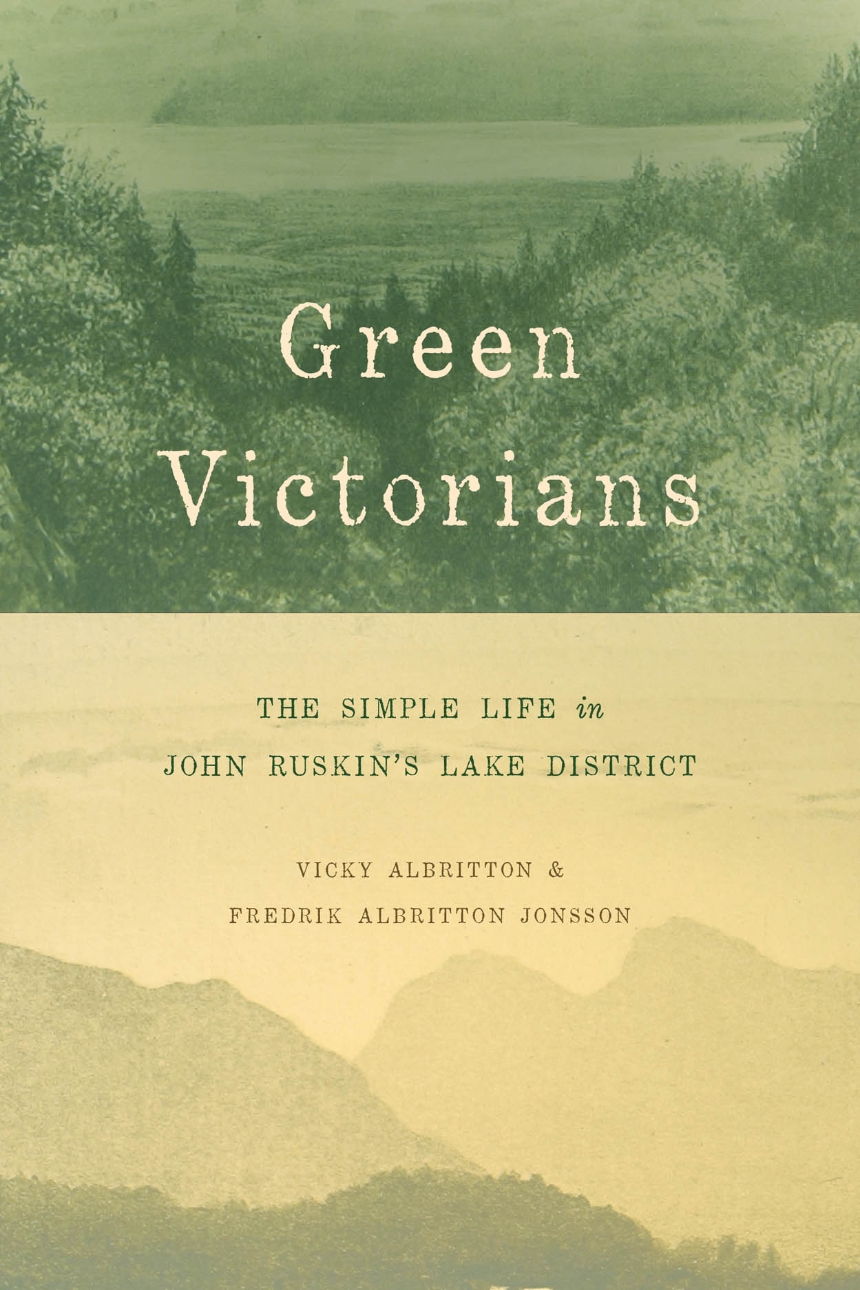Green Victorians
The Simple Life in John Ruskin’s Lake District
From Henry David Thoreau to Bill McKibben, critics and philosophers have long sought to demonstrate how a sufficient life—one without constant, environmentally damaging growth—might still be rich and satisfying. Yet one crucial episode in the history of sufficiency has been largely forgotten. Green Victorians tells the story of a circle of men and women in the English Lake District who attempted to create a new kind of economy, turning their backs on Victorian consumer society in order to live a life dependent not on material abundance and social prestige but on artful simplicity and the bonds of community.
At the center of their social experiment was the charismatic art critic and political economist John Ruskin. Albritton and Albritton Jonsson show how Ruskin’s followers turned his theory into practice in a series of ambitious local projects ranging from hand spinning and woodworking to gardening, archaeology, and pedagogy. This is a lively yet unsettling story, for there was a dark side to Ruskin’s community as well—racist thinking, paternalism, and technophobia. Richly illustrated, Green Victorians breaks new ground, connecting the ideas and practices of Ruskin’s utopian community with the problems of ethical consumption then and now.
At the center of their social experiment was the charismatic art critic and political economist John Ruskin. Albritton and Albritton Jonsson show how Ruskin’s followers turned his theory into practice in a series of ambitious local projects ranging from hand spinning and woodworking to gardening, archaeology, and pedagogy. This is a lively yet unsettling story, for there was a dark side to Ruskin’s community as well—racist thinking, paternalism, and technophobia. Richly illustrated, Green Victorians breaks new ground, connecting the ideas and practices of Ruskin’s utopian community with the problems of ethical consumption then and now.
Read an excerpt from the introduction.
224 pages | 32 halftones | 6 x 9 | © 2016
Art: British Art
History: British and Irish History, Environmental History
Literature and Literary Criticism: British and Irish Literature
Reviews
Table of Contents
Map
Introduction: Green Victorians
Chapter One: No Wealth but Life
Chapter Two: Selling Sufficiency
Chapter Three: Queen Susan
Chapter Four: Taming the Steam Dragon
Chapter Five: Insatiable Imagination
Chapter Six: Nothing Much
Conclusion: Ruskin in the Anthropocene
Acknowledgments
Abbreviations
Notes
Index
Introduction: Green Victorians
Chapter One: No Wealth but Life
Chapter Two: Selling Sufficiency
Chapter Three: Queen Susan
Chapter Four: Taming the Steam Dragon
Chapter Five: Insatiable Imagination
Chapter Six: Nothing Much
Conclusion: Ruskin in the Anthropocene
Acknowledgments
Abbreviations
Notes
Index
